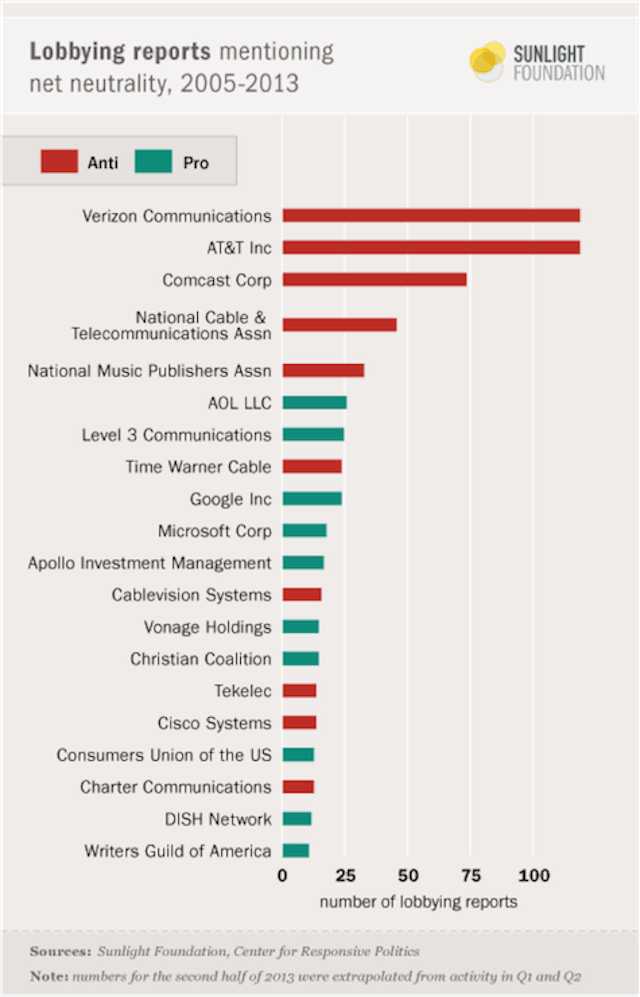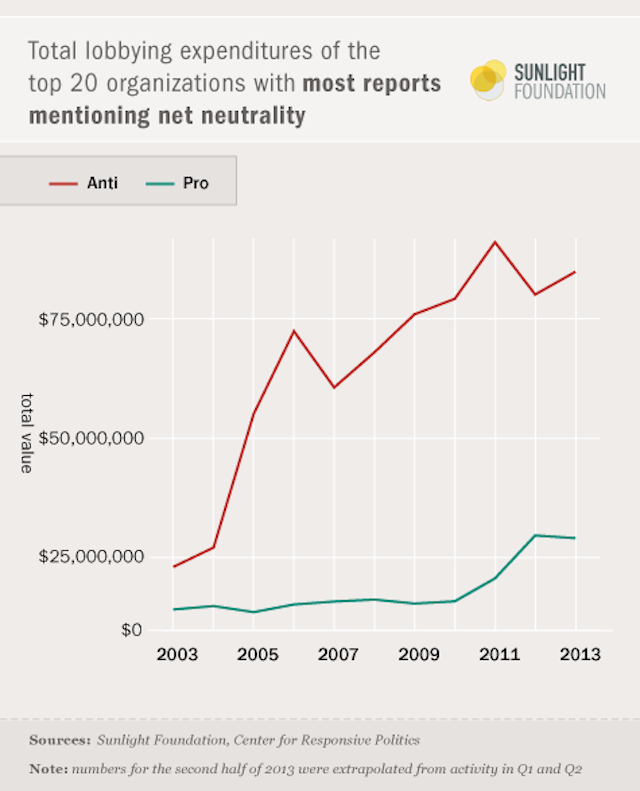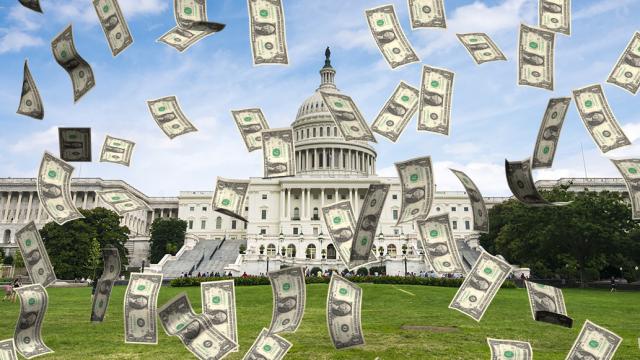Who’s spending the most to win the hearts and minds of US Congress in the war on net neutrality? Verizon and AT&T, of course. Followed by — guess who? — Comcast. In other words, the companies that stand to lose money if the internet remains free and open are trying to shut it down.
The Sunlight Foundation recently published a series of graphics showing lobbyist spending from companies that support and oppose net neutrality. From 2003 to 2013, anti-net neutrality groups issued nearly three times as many lobbying reports mentioning net neutrality as those that support it, like AOL, Google and Microsoft. Verizon and AT&T alone each issued 119 reports, while Google issued less than 25. None of this is surprising, though, because big telecom companies were spending millions on lobbying before companies like Google even employed lobbyists.

It’s difficult to boil this all down into a dollar amount, though. While the Sunlight Foundation breaks out these companies’ total spending on lobbying to reveal that anti-net neutrality groups out spend pro-net neutrality groups by a five-to-one ratio, that graph fails to recognise that all of these companies hire lobbyists to do more than fight for or against net neutrality. The sharp increase in total spending from anti-net neutrality groups is, nevertheless, undeniable.

This is only the beginning. Now that the FCC has pushed forward with a horrible set of proposed net neutrality rules that would allow internet fast lanes for those who paid for them, we’re going to hear more and more about how the war for a free and open the internet hinges upon a battle over profit margins. Companies like Verizon and AT&T stand to make more money if the FCC turns its proposed rules into policy, while startups that can’t even afford lobbyists in the first place stand to lose out.
But hey, why wouldn’t the FCC bend to big telecom interests? After all, high-paying jobs with big telecom companies are a popular destination for outgoing commissioners. FCC chairman Tom Wheeler himself is a former big telecom lobbyist. The elected officials on Capitol Hill can’t be bought and sold so directly (we hope) so it’s only natural that big telecom would shovel tens of millions of lobbyist dollars in their direction. We must just look like a bunch of idiots for letting them. [Sunlight Foundation]
Picture: Shutterstock
